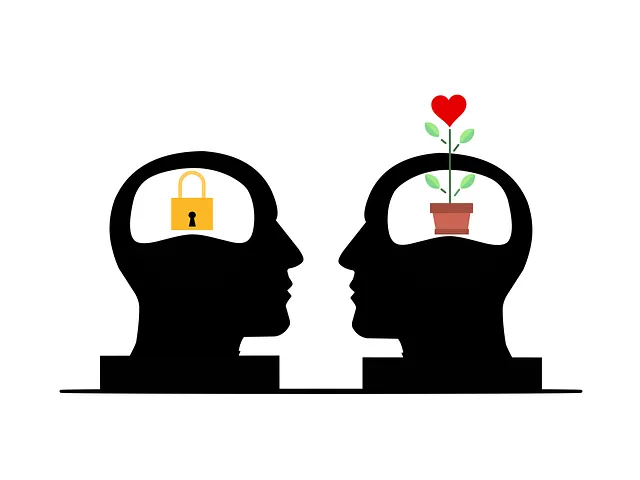Stress management is a personalized journey, with workshops led by superior Kaiser Permanente mental health providers offering tailored solutions. These experts guide participants through evidence-based practices, emotional regulation techniques, and interactive sessions to identify triggers and build resilience against daily stressors. By combining mindfulness, role-playing, and group discussions, these workshops create supportive environments for long-term mental wellness. Engaging participants actively in the learning process ensures immediate application of healthy habits, while structured risk assessments cater to professionals' specific needs. Continuous evaluation measures success, ensuring workshops drive meaningful change and align with Kaiser Permanente's commitment to excellence in mental health care.
Stress management workshops play a crucial role in empowering individuals to navigate life’s challenges. This article delves into the art of organizing transformative sessions, equipping mental health professionals with essential tools. We explore common stress triggers and their impact, highlighting the vital role these experts play in our well-being. The guide covers designing engaging workshops, utilizing interactive techniques, and measuring success according to Kaiser Permanente standards, ensuring superior outcomes. Discover how these strategies foster resilience and promote a healthier, more balanced life.
- Understanding Stress: Unveiling Common Triggers and Impacts
- The Role of Mental Health Professionals in Stress Management
- Designing Effective Stress Management Workshops
- Engaging Participants: Interactive Techniques for Maximum Impact
- Measuring Success: Evaluating and Enhancing Workshop Outcomes with Kaiser Permanente Standards
Understanding Stress: Unveiling Common Triggers and Impacts

Stress is a complex experience that varies greatly from person to person. Understanding what triggers stress and how it affects individuals is crucial in effective management. Common stressors often include work-life imbalance, overwhelming responsibilities, financial pressures, and interpersonal relationships. At Kaiser Permanente, superior mental health providers emphasize that chronic stress can lead to burnout, impacting not just an individual’s mental well-being but also physical health.
Public awareness campaigns and communication strategies play a vital role in addressing these issues. By educating people on recognizing stress signs and promoting healthy coping mechanisms, organizations like Kaiser Permanente contribute to burnout prevention strategies for healthcare providers. This proactive approach ensures that both patients and professionals can navigate life’s challenges with enhanced resilience and improved mental health outcomes.
The Role of Mental Health Professionals in Stress Management

Stress management workshops play a pivotal role in empowering individuals to tackle their mental health challenges effectively. In this context, superior Kaiser Permanente mental health providers are invaluable assets. These professionals bring a wealth of knowledge and expertise in diagnosing and treating various mental health disorders, including depression prevention. They guide participants through evidence-based practices tailored to enhance emotional regulation and promote overall mental wellness.
The integration of mental wellness coaching programs within these workshops is significant. Such programs develop individuals’ coping strategies, fostering resilience against daily stressors. Through interactive sessions, participants learn to identify triggers, understand their emotions, and employ healthy habits for stress reduction. This proactive approach not only prevents the exacerbation of existing conditions but also encourages a positive shift towards emotional well-being.
Designing Effective Stress Management Workshops

When designing stress management workshops, it’s essential to involve superior Kaiser Permanente mental health providers who can offer evidence-based strategies tailored to diverse needs. These workshops should go beyond mere information sharing and incorporate interactive activities that promote active engagement. Mental wellness coaching programs development is a key aspect; coaches can guide participants in identifying triggers, adopting healthy coping mechanisms, and fostering resilience.
Emotional intelligence and empathy building strategies are integral components for effective stress management. Through role-playing exercises, group discussions, and mindfulness practices, participants can enhance their emotional awareness, improve interpersonal connections, and develop effective communication skills. By combining these approaches, workshops can create a supportive environment where individuals not only learn to manage stress but also cultivate lasting mental wellness.
Engaging Participants: Interactive Techniques for Maximum Impact

Engaging participants is key to ensuring the success of stress management workshops. Superior Kaiser Permanente mental health providers often utilize interactive techniques that foster active learning and personal connection. This approach goes beyond traditional lectures, aiming to create an environment where attendees can apply coping strategies immediately and share their experiences openly. Techniques like role-playing scenarios, group discussions, and experiential exercises promote engagement, making the workshop more dynamic and impactful.
By incorporating these methods, mental health professionals facilitate a deeper understanding of stress management concepts, including positive thinking and resilience building. This not only enhances knowledge but also encourages participants to adopt healthy habits that can be readily applied to their daily lives. A well-structured risk assessment for mental health professionals further complements these interactive sessions by providing insights into managing professional stressors, ensuring the overall well-being of care providers.
Measuring Success: Evaluating and Enhancing Workshop Outcomes with Kaiser Permanente Standards

Measuring success is a vital aspect of organizing stress management workshops, especially when aligning with the high standards set by Kaiser Permanente, renowned for its superior mental health services. The evaluation process should go beyond simple participant satisfaction to assess tangible improvements in attendees’ emotional intelligence and overall well-being. By employing evidence-based Stress Reduction Methods, the workshops can be designed to foster meaningful change.
Emotional Intelligence is a key indicator of successful stress management initiatives. Workshops that encourage self-awareness, empathy, and effective communication can help individuals better navigate stressful situations. Through pre- and post-workshop assessments, organizers can gauge emotional intelligence growth, ensuring the program’s effectiveness. This data-driven approach allows for continuous enhancement, enabling mental health providers to refine their techniques and deliver exceptional care aligned with Kaiser Permanente’s commitment to excellence.
Stress management workshops, designed by superior Kaiser Permanente mental health providers, can significantly enhance participants’ well-being. By understanding stress triggers, leveraging interactive techniques, and measuring success against established standards, these workshops become powerful tools for navigating life’s challenges. This holistic approach not only equips individuals with effective coping strategies but also fosters long-term mental resilience, ensuring a healthier and more balanced lifestyle.






